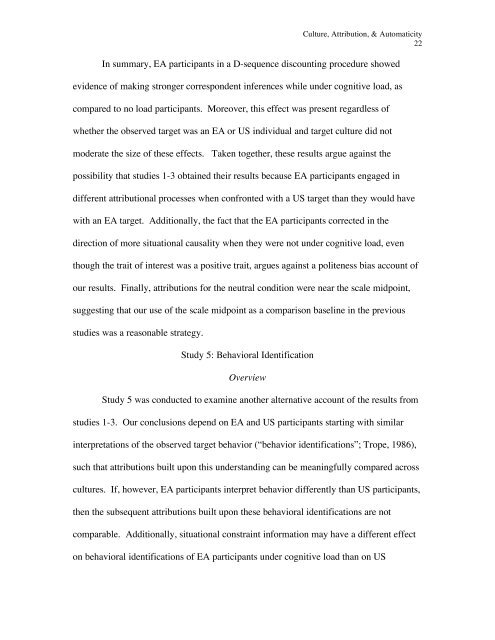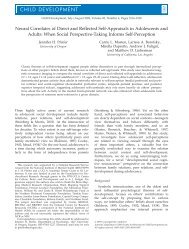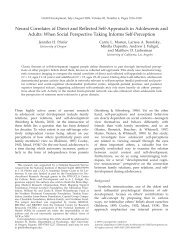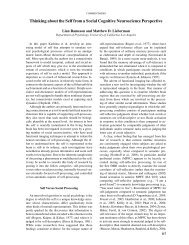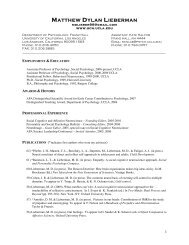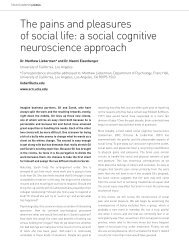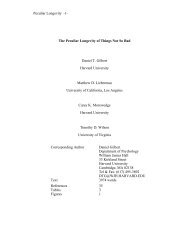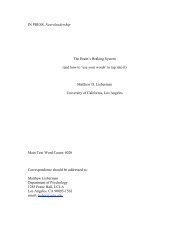In Progress – DO NOT CITE Attributional inference across cultures ...
In Progress – DO NOT CITE Attributional inference across cultures ...
In Progress – DO NOT CITE Attributional inference across cultures ...
Create successful ePaper yourself
Turn your PDF publications into a flip-book with our unique Google optimized e-Paper software.
Culture, Attribution, & Automaticity<br />
22<br />
<strong>In</strong> summary, EA participants in a D-sequence discounting procedure showed<br />
evidence of making stronger correspondent <strong>inference</strong>s while under cognitive load, as<br />
compared to no load participants. Moreover, this effect was present regardless of<br />
whether the observed target was an EA or US individual and target culture did not<br />
moderate the size of these effects. Taken together, these results argue against the<br />
possibility that studies 1-3 obtained their results because EA participants engaged in<br />
different attributional processes when confronted with a US target than they would have<br />
with an EA target. Additionally, the fact that the EA participants corrected in the<br />
direction of more situational causality when they were not under cognitive load, even<br />
though the trait of interest was a positive trait, argues against a politeness bias account of<br />
our results. Finally, attributions for the neutral condition were near the scale midpoint,<br />
suggesting that our use of the scale midpoint as a comparison baseline in the previous<br />
studies was a reasonable strategy.<br />
Study 5: Behavioral Identification<br />
Overview<br />
Study 5 was conducted to examine another alternative account of the results from<br />
studies 1-3. Our conclusions depend on EA and US participants starting with similar<br />
interpretations of the observed target behavior (“behavior identifications”; Trope, 1986),<br />
such that attributions built upon this understanding can be meaningfully compared <strong>across</strong><br />
<strong>cultures</strong>. If, however, EA participants interpret behavior differently than US participants,<br />
then the subsequent attributions built upon these behavioral identifications are not<br />
comparable. Additionally, situational constraint information may have a different effect<br />
on behavioral identifications of EA participants under cognitive load than on US


